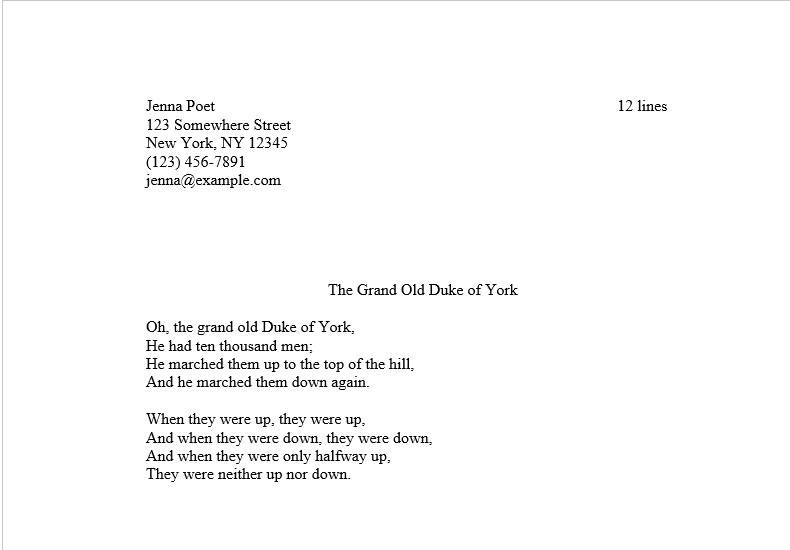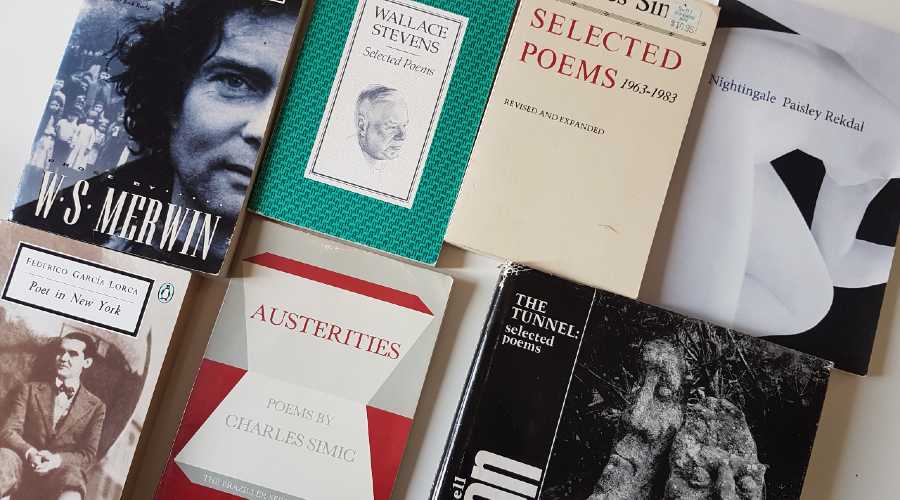How to Publish Poems
Here, you'll find advice on how to publish poems in literary magazines or as a book-length collection. For more writing tips, be sure to join our free email group.
How to get poems published in literary magazines
Literary magazines are a great way to get your poems into the world and build a publishing track record.
There's a huge variety of literary magazines that publish poetry. We've put together a directory of literary magazines and journals which you can get for free here.
Make a list of magazines that publish the type of poetry you write; e.g., free verse, sonnets, haiku, etc. Then investigate further by reading the poems they publish. Many literary magazines are available to read online, or else you can look for them in a library or a bookstore.
You want to find magazines that publish poetry that reminds you of your own, in terms of style, form, and sensibility. That's an indication that the editors might be looking for poems like yours.
Once you've chosen some magazines to submit to, visit their websites to check current submission guidelines.
Unless the magazine specifies otherwise, you'll submit 3-5 poems at a time. Use a separate page for each poem.
You'll use standard manuscript format for the poems.
You'll use business letter format for your cover letter, if you're asked to include one. Keep the cover letter short and to the point (e.g., "I'm submitting such-and-such. I've previously published poems in X Magazine. Thank you very much for your consideration.")
Get our Guide to Publishing in Literary Magazines for free.

Manuscript format for poems
Use Courier, Arial, or Times New Roman font, black, 12 point. Leave at least 1" margins on all sides of the page. Put your name and contact information in the top left corner, and a line count ("X lines") in the top right. Center the title of the poem about six lines down. Skip a line, then begin the poem. Single-space the poem (unless the magazine guidelines say otherwise), skipping an extra line between stanzas.
Here's an example of what this looks like.

Tracking poetry submissions
I've created a simple spreadsheet you can use to track your submissions. Just click here and save or download a copy.
How to publish a chapbook or poetry collection
To traditionally publish a volume of poetry, you'll typically need 40-80 pages of poems for a full-length collection. For a shorter collection, known as a chapbook, about 25-30 pages might be sufficient.
You'll have an easier time finding a traditional publisher for your collection if you already have a track record publishing poems in literary magazines.
Poets & Writers maintains a database of small publishers and university presses, which you can search to find those currently accepting poetry collection submissions. Most large publishers are unlikely to publish a collection by a new poet.
Once you've identified some potential publishers, visit their websites to check their current submission requirements. You can find instructions for formatting a book-length poetry manuscript here.

Simultaneous submissions
Some magazines and publishing houses don't allow simultaneous submissions. In other words, they do not want you to send them a manuscript that has been submitted somewhere else at the same time.
In a panel discussion, I heard the editor of a literary magazine complaining about simultaneous submissions. He expressed frustration about investing significant time on an author's submission, only to discover that it was already being published elsewhere.
After the presentation ended, I heard a number of authors responding with frustration of their own. "Like we can afford to sit around and wait for nine months," one writer complained.
Publishers often take a very long time to respond to submissions. And they may receive hundreds of submissions for every one they accept. Under these conditions, it may not seem practical to submit to just one place at a time.
You can decide how you want to handle this. Some publishers do allow simultaneous submissions, but ask you to let them know. You can include a line in your cover letter saying something like, "These poems are a simultaneous submission. I will be sure to inform you right away if they are accepted somewhere else."
Poetry contests
There are many contests and grants available for poets. Some of them charge an entry fee, but others are free.
Be wary of scams where contest winners are asked to buy something like an anthology containing their work.
Poets & Writers offers a directory of legitimate contests. If you want, you can set the search criteria to display free contests only
Self-publishing your poems
It's easy to create a blog or website for your poetry. Wordpress.com, Blogger.com, and Squarespace.com are three platforms that offer both free and paid tools for easily building your site.
You can treat your blog as an online literary magazine, posting new poems when you finish them. Then you can share links to your published poems on social media.
Many poets are also interested in visual art. If that's your case, you can use your artistic talents to make the website beautiful.
I know one very good poet who has created an e-mail list to share his poems. He asks people he meets if they are interested in being added to the list. And then he emails out his new poems when he writes them, including a link to his blog where there's an audio version of each poem.
Another option is to self-publish a chapbook or poetry collection. You can read more about self-publishing a book here.

How to Publish Poems - Next Steps
Get inspired to write lots of poetry in our eight-week course!
Get our e-book on how to publish poems in literary magazines.